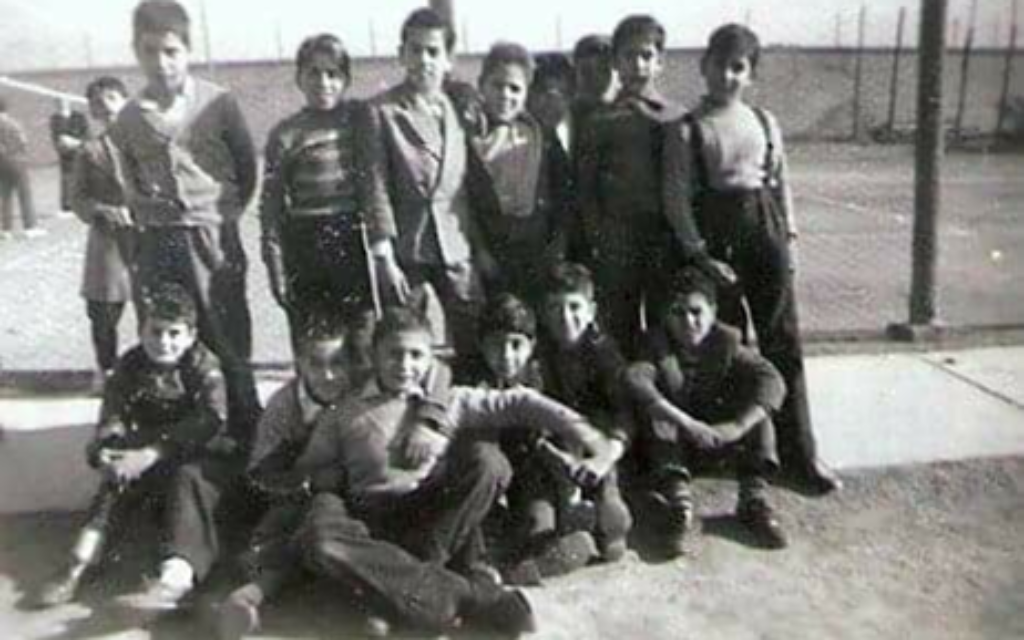Iraqi Jew Tells Forgotten Story of Escape
The Breman museum welcomed Maurice Shohet to share his story of what life was like living in Iraq as a Jew.
As government upheaval spread through Iraq in the 1940s and late ’60s, many Iraqi Jews fled as refugees. Americans know little of the millennia-old community’s history, but Iraqi Jew Maurice Shohet shared one of many untold stories.
After the British army entered Baghdad 100 years ago, King Faisel I bin Hussein bin Ali al-Hashemi and the Jewish community cooperating, leading to the establishment of a Zionist organization that lasted until 1929.
But the arrival of Haj Amin al-Husseini as the mufti of Jerusalem changed everything, from deadly riots in 1929 to incitement against Jews and Arab revolt in Palestine in the late 1930s.
Get The AJT Newsletter by email and never miss our top stories Free Sign Up
Anti-Semitic propaganda from Berlin in Arabic and Nazi youth organizations formed in Iraq, and Jews suffered a farhud (violent dispossession) on Shavuot in 1941.

Shohet recalled his grandmother’s story as relayed by his mother. After Shohet’s grandmother discovered that her house was marked for attack, a Muslim neighbor hid all 11 siblings and supplied four security guards until the British army intervened 56 hours later.
The story was part of Shohet’s lecture “The Story Never Told: The Fate of Iraq’s Jews” on Sunday, March 25, at the Selig Center — an extension of the Breman Museum’s exhibit “Discovery and Recovery: Preserving Iraqi Jewish Heritage,” on display until April 29.
The establishment of Israel and Arab countries’ defeat in the Six-Day War led to additional suffering of Jews in Iraq, Shohet said. Daily executions were performed in public for the masses; Jewish businessman Shafiq Adas was hanged in front of his mansion in Basra.
Consequently, a Zionist underground movement grew and helped Jews escape to Israel. About 8,000 to 10,000 Jews were left in Iraq by 1951, Shohet said, including his family.
Jews trying to leave were required to register for immigration and had all their property and bank accounts seized, Shohet said. To avoid having their assets confiscated, Shohet’s parents sold their house and business, but after they received a letter from relatives about living in tents with limited food in Israel, the family decided to stay in Iraq.
Shohet attended a Jewish high school in Baghdad that was the only institution where boys and girls were allowed to study together. The school included one or two Muslim students because of its exceptional reputation.
After the Six-Day War, Shohet said, Jews were no longer permitted to apply to universities in Iraq and were subjected to greater restrictions.
To escape persecution, Shohet’s family decided to flee. In 1970 a Kurdish smuggler transported the family to Baghdad, then to Erbil, where they stayed in the smuggler’s home for five days.
The family crossed the border into Iran, but they were spotted by Iraqi security forces. The officers used a searchlight and dogs for 10 tense minutes until the smugglers paid off the border guards to let them go.
Shohet now is the president of the World Organization of Jews From Iraq and works at the Washington Institute for Near East Policy. In 2004 he returned to Iraq to help with the preservation of Jewish sites.
Fewer than five Jews live in Baghdad today, Shohet said, but the community’s origins stretch as far back as 721 B.C.E. to the exile of the 10 tribes by the Assyrians. Because Iraq contains the tombs of prophets such as Nahum and Ezekiel, it remains one of the most important countries to Jews outside Israel.
The story never told is about highlighting events people don’t know regarding Jews’ flight from Iraq and what they went through under the rule of the Baath party, Shohet said. “It’s not easy to find people who crossed countries and walked through borders, but it’s something that needs to be documented and known.”
Shohet said Jewish refugee stories from the Middle East are seldom exposed because they weaken the Zionist ideal of Israel. “By defining them as refugees, it would have correlated with the Palestinian plight, which Israel may have not wanted at the time. But many years have passed, and the new generation has established itself, which may be why they are now talking about it.”








comments